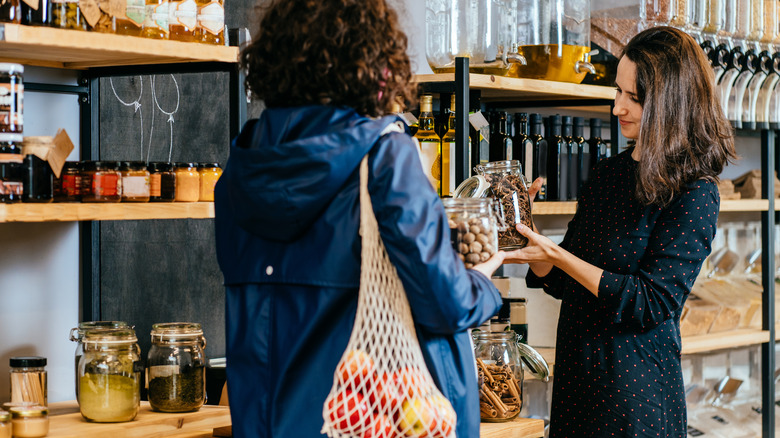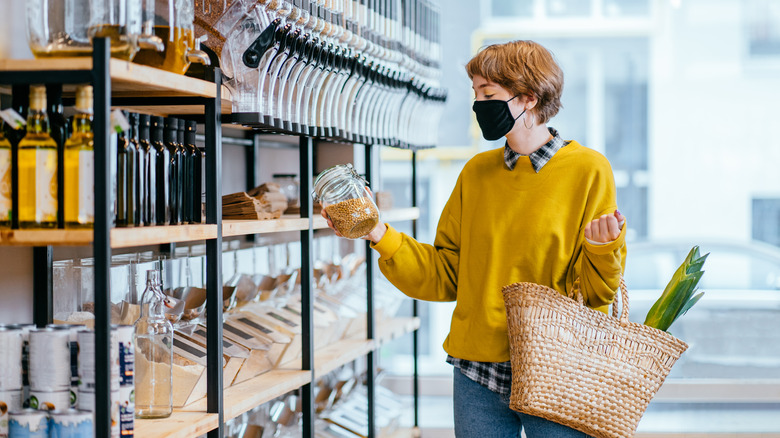Should You Buy In Bulk At The Grocery Store? It Depends
Contemplating becoming a bulk shopper? You aren't alone. Over 100 million foodies had a Costco membership last year, a figure that has been steadily growing since 2014. Plus, for some, there's the undeniably alluring fantasy of finally transfiguring yourself into the canvas-tote-bag-carrying, Birkenstocks-wearing, eco-conscious bulk grocery foodie, bringing an empty Mason jar to the store to fill with a pound of steel-cut oats and some quinoa. (Swoon.)
But, how can the discerning shopper be sure they're saving and not overspending when buying a certain product in bulk? It's all about the unit price. For instance, if a single can of beans costs $1.12, but a box of 30 cans costs $23, that drops the unit (can) price to $0.77. If you know your household puts away a lot of chickpeas, it might be a good call to spring for the bulk pack. Less money out of your pocket and fewer future trips to the grocery store further translates to fewer opportunities to be seduced by an impulse purchase, more free time, and less gas money.
Other times, when it isn't as easy as dividing by 30 cans, the "unit" might be a weight. To calculate the price in these cases, divide the total price of the item by the weight. For instance, if a 5-pound bag of flour costs $5, that's $1 per pound. If a 10-pound bag costs $10, that also comes out to $1 per pound, in which case buying in bulk would cost the same as not.
Check the unit price and few other things while you're at it
There are a few caveats to this strategy. Keep in mind that buying in bulk works best with non-perishable goods like canned veggies, tinned fish, oatmeal, etc. Nuts and cooking oils are technically shelf stable, but they lose their quality after a few months. Same deal with spices, so buy these in smaller quantities.
Also, buying in bulk only makes sense if your living situation is equipped with adequate storage. Got an open basement for stashing a 60-pound bag of rice? Go wild. On the flip side, if you live in a 300-square-foot apartment, your four roommates probably aren't going to appreciate that same enormous rice bag stuffed into the 2-foot-wide pantry you all share. (Brooklyn foodies, we're looking at you.)
Perhaps the most important caveat to bulk grocery shopping is that it means spending the money up-front. To reference our earlier example, spending $23 on 30 cans of beans might save you money in the long run, but if you'll feel more comfortable just parting with the $1.12 for a single can this trip, right on. In 2021, the price of wholesale groceries went up by a whopping 9.7%, per CNBC, as more and more consumers opted to buy in bulk during the pandemic. On the flip side, many households turned to their well-stocked dry goods pantries in late 2021 and early 2022 as record-high inflation made it tougher to buy fresh groceries.

